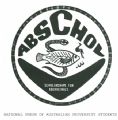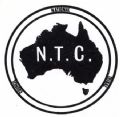Organisations
The organisations mentioned here are of different kinds. A number of them were affiliated to the Federal Council for the Advancement of Aborigines and Torres Strait Islanders. There were 68 such organisations at the height of FCAATSI's powers. Some were Aboriginal community organisations, others were unions and religious and political organisations. The Council of Aboriginal Affairs was a government body and the Anti-Slavery Society had its headquarters in London.
This section of the site is still growing. You may wish to suggest an organisation which is not mentioned here but which should be. Email us: indigenousrights@nma.gov.au.
Aboriginal Legal Service
The Aboriginal Legal Service (ALS) was first established in 1970 to counteract police harassment among the Aboriginal community in Redfern, New South Wales.
Aboriginal Medical Service
The Aboriginal Medical Service (AMS) was established in 1971 as a community-controlled health centre for Indigenous people in Redfern, New South Wales.
Aboriginal Progress Association
The Aboriginal Progress Association was formed in August 1964 to promote Aboriginal progress and welfare.
Aboriginal-Australian Fellowship

The Aboriginal-Australian Fellowship, a multi-racial body, operated in New South Wales from 1956 to 1969.
Aborigines Progressive Association

The Aborigines Progressive Association, an all-Aboriginal body, was formed in 1937 with Jack Patten as president and Bill Ferguson as secretary.
Abschol

Aboriginal Scholarships, or Abschol as it was mostly known, began as a committee of the National Union of Australian University Students in the 1950s.
Anti-Slavery Society
The London-based Anti-Slavery Society, formed in 1839, merged in 1909 with the Aborigines Protection Society, thus becoming the Anti-Slavery and Aborigines Protection Society. It still exists.
Australian Aborigines' League

The Australian Aborigines' League (AAL), an all-Aboriginal organisation, was formalised in 1936.
Cairns Aboriginal and Torres Strait Islander Advancement League
The Cairns Aboriginal and Torres Strait Islander Advancement League (CATSIAL) was formed in 1959.
Communist Party of Australia
The Communist Party of Australia, formed in 1920, was the first Australian political party to develop policy regarding Aboriginal Australians.
Council for Aboriginal Affairs
The Council for Aboriginal Affairs, headed by HC (Nugget) Coombs, was the federal government's response to the success of the referendum. It was a reformist body in favour of Aboriginal land rights and often at odds with the Liberal-Country Party government it served.
Council for Aboriginal Rights

The Council for Aboriginal Rights (Victoria) formed in 1951 to 'plan, conduct and organise the widest possible support for a campaign to obtain justice for all Australian Aborigines'.
Federal Council for the Advancement of Aborigines and Torres Strait Islanders (FCAATSI)

The Federal Council for Aboriginal Advancement (FCAA) was formed in Adelaide in 1958 at a meeting attended by representatives from nine 'advancement' organisations. It was disbanded in 1978, soon after its name had been changed to the National Aboriginal and Islander Liberation Movement.
Foundation for Aboriginal Affairs
The Foundation for Aboriginal Affairs was established in 1963 to assist the large numbers of Aboriginal people coming to Sydney with housing, employment, education and legal and medical assistance.
Methodist Commission on Aboriginal Affairs
The Methodist Commission on Aboriginal Affairs was established in October 1962 to gather information on Aboriginal affairs, study the issues involved and, where needed, to make statements to members of the Methodist Church and the wider community.
National Black Theatre
Along with Nindethana theatre in Melbourne, National Black Theatre in Redfern was one of the first Indigenous theatre companies.
National Council of Aboriginal and Islander Women
The growth of women's organisations in the early 1970s led some Aboriginal women to recognise that there was a need for an Indigenous Women's organisation. The National Council of Aboriginal and Islander Women was the result.
National Missionary Council
The National Missionary Council was the peak body responsible for missionary work among Aboriginal Australians.
National Tribal Council

The National Tribal Council was formed in 1970 following a rift at the FCAATSI conference of that year over Indigenous control of the organisation. It was the first Indigenous-controlled national organisation but lasted only a few years.
Native Welfare Council
Unlike similar bodies in the eastern states, this body was formed in Western Australia at the suggestion of government as a way of making negotiations with the state government easier.
North Australian Workers Union
The North Australian Workers Union existed to safeguard the pay and conditions of pastoral industry employees in the north of Australia, but until the late 1960s Aboriginal workers were excluded.
Northern Territory Council for Aboriginal Rights
The Northern Territory Council for Aboriginal Rights (NTCAR), formed in Darwin in late 1961, played a central organising role in supporting the Gurindji walk-off in 1966.
On Aboriginal Affairs

On Aboriginal Affairs was the name of a periodical produced by Aboriginal Affairs, a small independent Melbourne group.
One People of Australia League

The One People of Australia League (OPAL) was a welfare organisation formed in Queensland in 1961.
Pindan Group
Pindan was the name of the cooperative company set up by Don McLeod and the people who had taken part in the 1946 strike for equal wages for Aboriginal pastoral workers in the Pilbara.
Queensland Council for the Advancement of Aborigines and Torres Strait Islanders (QCAATSI)
The Queensland Council for the Advancement of Aborigines and Torres Strait Islanders (QCAATSI) began life as the United Council for Aboriginal Welfare in 1958.
Society of Friends (Quakers)
The Society of Friends has a long history of opposition to racism, with a number of Quakers playing active parts in the Aboriginal rights movement of the 1960s.
South Australian Aborigines' Advancement League
The South Australian Aborigines' Advancement League was the oldest of the advancement leagues formed by non-Aboriginal Australians to change social attitudes and remove discriminatory legislation.
Student Action for Aborigines

Student Action for Aborigines (SAFA) was formed at the University of Sydney in 1964.
Tranby Co-operative Ltd

Tranby Aboriginal College began life in 1957 when a cooperative was set up to provide practical education for Aboriginal and Islander people.
Union of Australian Women

The Union of Australian Women, a left-wing body, provided support both for Aboriginal campaigns and for its Aboriginal members such as Gladys O'Shane and Pearl Gibbs.
Victorian Aborigines Advancement League

The Victorian Aborigines Advancment League was formed in 1957 and is still active today.
Women's Christian Temperance Union (WCTU)
Through some of its energetic members, the Women's Christian Temperance Union (WCTU) played a key role in the formation of the Victorian Aborigines Advancement League and plans for the development of a national body.
Women's International League for Peace and Freedom (WILPF)

Formed in 1915 to protest the destruction and suffering caused by the war in Europe, the Women's International League for Peace and Freedom (WILPF) is still active today.